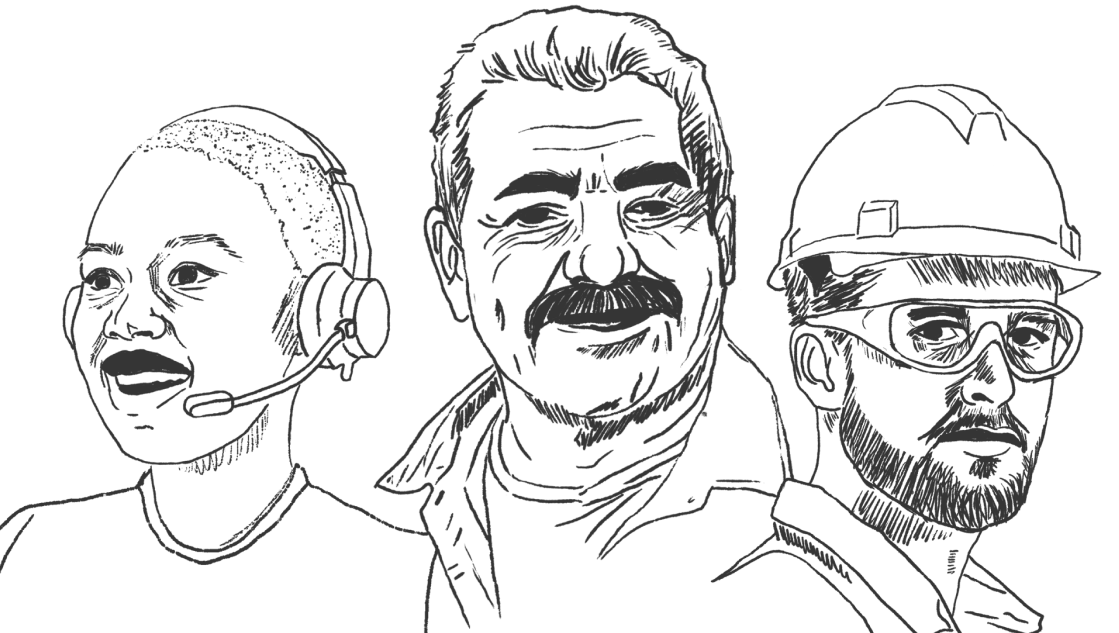


Signs and Symptoms of Traumatic Brain Injury
A2X LAW
Traumatic brain injuries (TBIs) can have profound and long-lasting effects on individuals, impacting their quality of life, employment, and overall well-being. In personal injury cases, it's crucial to recognize the signs and symptoms of TBIs as they may not always be immediately apparent. In this blog post, A2X Law sheds light on the signs and symptoms of traumatic brain injuries and their significance in personal injury claims.
We're committed to providing accurate and informative insights into the legal aspects of traumatic brain injuries. Our goal is to help individuals and their legal representatives navigate the complexities of personal injury cases with a focus on securing the rightful compensation for TBI-related damages.
Let's delve into the world of traumatic brain injuries and understand how their recognition is pivotal in the legal realm.
What Is a Traumatic Brain Injury?
A traumatic brain injury occurs when a sudden, violent blow or jolt to the head disrupts normal brain function. TBIs can range from mild to severe and may result from various incidents, such as car accidents, falls, or sports injuries.
Common Signs and Symptoms
- Headache: Persistent or severe headaches can be a sign of TBI.
- Confusion: Disorientation, memory loss, or difficulty concentrating.
- Nausea and Vomiting: Frequent nausea or vomiting post-injury.
- Sensory Changes: Changes in vision, hearing, or sensitivity to light and sound.
- Mood Swings: Unexplained mood changes, irritability, or increased emotional sensitivity.
- Loss of Consciousness: Brief or extended loss of consciousness.
- Balance and Coordination Issues: Difficulty maintaining balance and coordination.
- Seizures: Development of seizure activity.
- Cognitive Impairments: Difficulty with thinking, reasoning, or memory.
- Sleep Disturbances: Changes in sleep patterns, such as insomnia or excessive drowsiness.
- Clear Fluid Drainage: Clear fluid draining from the ears or nose, which may indicate a skull fracture.
Delayed Onset of Symptoms
It's essential to note that TBI symptoms may not always appear immediately after an accident. Some symptoms might manifest hours or even days later. This delayed onset can complicate the process of linking the injury to the incident that caused it, making early medical evaluation vital.
The Legal Implications
In personal injury cases, recognizing and documenting TBI symptoms is crucial. It can significantly impact the outcome of the case, affecting the compensation awarded to the injured party. Legal professionals specializing in personal injury law can help establish the link between the accident and the TBI, ensuring that victims receive the compensation they deserve for medical bills, lost wages, pain, and suffering.
Seeking Medical Attention
If you or a loved one experience any of the signs and symptoms mentioned, seeking immediate medical attention is paramount. A prompt diagnosis and appropriate treatment can make a substantial difference in the prognosis for TBI cases.
Understanding the signs and symptoms of traumatic brain injuries is essential in personal injury cases. Not only does it aid in early diagnosis and treatment, but it can also be the linchpin in legal proceedings. At A2X Law, we are dedicated to helping those affected by TBIs navigate the legal landscape to secure fair compensation and justice.
Remember that the information provided in this blog post is for general informational purposes only and should not be considered legal advice. If you or a loved one has suffered a traumatic brain injury due to someone else's negligence, consult with an experienced personal injury attorney to protect your rights and interests.

Signs and Symptoms of Traumatic Brain Injury
A2X LAW
Traumatic brain injuries (TBIs) can have profound and long-lasting effects on individuals, impacting their quality of life, employment, and overall well-being. In personal injury cases, it's crucial to recognize the signs and symptoms of TBIs as they may not always be immediately apparent. In this blog post, A2X Law sheds light on the signs and symptoms of traumatic brain injuries and their significance in personal injury claims.
We're committed to providing accurate and informative insights into the legal aspects of traumatic brain injuries. Our goal is to help individuals and their legal representatives navigate the complexities of personal injury cases with a focus on securing the rightful compensation for TBI-related damages.
Let's delve into the world of traumatic brain injuries and understand how their recognition is pivotal in the legal realm.
What Is a Traumatic Brain Injury?
A traumatic brain injury occurs when a sudden, violent blow or jolt to the head disrupts normal brain function. TBIs can range from mild to severe and may result from various incidents, such as car accidents, falls, or sports injuries.
Common Signs and Symptoms
- Headache: Persistent or severe headaches can be a sign of TBI.
- Confusion: Disorientation, memory loss, or difficulty concentrating.
- Nausea and Vomiting: Frequent nausea or vomiting post-injury.
- Sensory Changes: Changes in vision, hearing, or sensitivity to light and sound.
- Mood Swings: Unexplained mood changes, irritability, or increased emotional sensitivity.
- Loss of Consciousness: Brief or extended loss of consciousness.
- Balance and Coordination Issues: Difficulty maintaining balance and coordination.
- Seizures: Development of seizure activity.
- Cognitive Impairments: Difficulty with thinking, reasoning, or memory.
- Sleep Disturbances: Changes in sleep patterns, such as insomnia or excessive drowsiness.
- Clear Fluid Drainage: Clear fluid draining from the ears or nose, which may indicate a skull fracture.
Delayed Onset of Symptoms
It's essential to note that TBI symptoms may not always appear immediately after an accident. Some symptoms might manifest hours or even days later. This delayed onset can complicate the process of linking the injury to the incident that caused it, making early medical evaluation vital.
The Legal Implications
In personal injury cases, recognizing and documenting TBI symptoms is crucial. It can significantly impact the outcome of the case, affecting the compensation awarded to the injured party. Legal professionals specializing in personal injury law can help establish the link between the accident and the TBI, ensuring that victims receive the compensation they deserve for medical bills, lost wages, pain, and suffering.
Seeking Medical Attention
If you or a loved one experience any of the signs and symptoms mentioned, seeking immediate medical attention is paramount. A prompt diagnosis and appropriate treatment can make a substantial difference in the prognosis for TBI cases.
Understanding the signs and symptoms of traumatic brain injuries is essential in personal injury cases. Not only does it aid in early diagnosis and treatment, but it can also be the linchpin in legal proceedings. At A2X Law, we are dedicated to helping those affected by TBIs navigate the legal landscape to secure fair compensation and justice.
Remember that the information provided in this blog post is for general informational purposes only and should not be considered legal advice. If you or a loved one has suffered a traumatic brain injury due to someone else's negligence, consult with an experienced personal injury attorney to protect your rights and interests.
FOR YOU
A LEGAL BLOG
FOR YOU
A LEGAL BLOG
FOR YOU
A LEGAL BLOG
BY A2X LAW | SEP 25, 2023
Get the lowdown on the Fair Labor Standards Act (FLSA) - the foundation of workers' rights.











